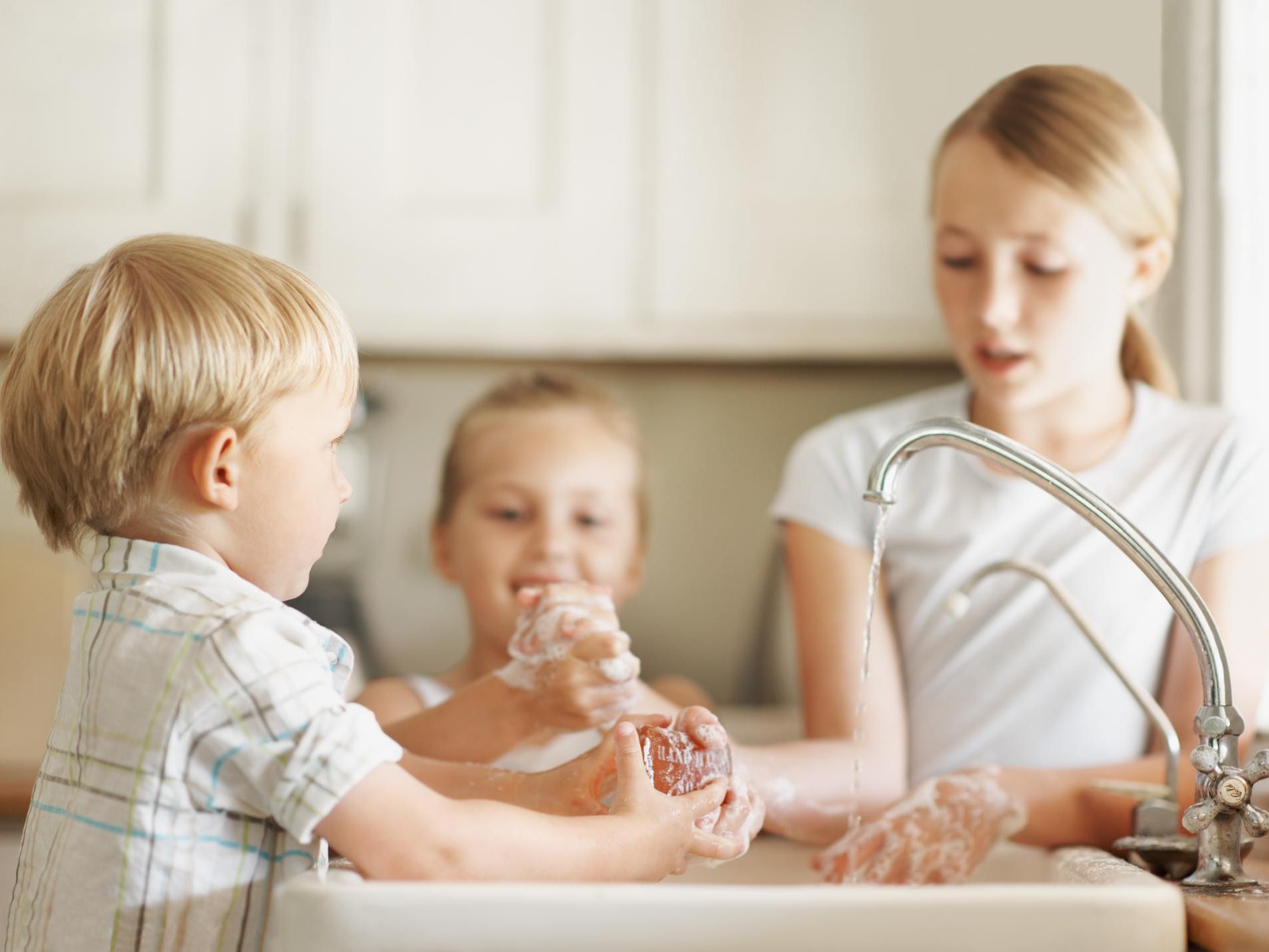
What is personal hygiene for children?
Your child needs to keep themselves clean to remain healthy and to feel good about themselves. Good personal hygiene will help boost their self-esteem and confidence.
Teaching your child good hygiene habits
We all need to keep clean to avoid harmful germs and avoid getting sick. Good personal hygiene also boosts confidence by dealing with problems like bad breath or body odour.
For children, the basics of good personal hygiene are:
- washing their hands
- covering their mouth when they cough
- having regular baths or showers
- brushing and flossing their teeth
You may have to help your child learn and practise good personal hygiene habits. These will become even more important as they grow older and approach puberty.
Being able to talk openly and honestly about keeping clean is important. This will help you manage more difficult personal hygiene issues that are likely to come up when they are teenagers.
Washing hands
Most germs are spread through hand contact. Regularly washing hands will prevent your child and others from getting sick.
Encourage your child to wash their hands with soap and water for 20 seconds:
- when their hands look dirty
- before eating or making food
- after touching raw meats, including chicken and beef
- after touching any body fluids like blood, urine (wee) or vomit (sick)
- after touching animals (including cats and dogs)
- after blowing their nose, sneezing or coughing
- after going to the toilet
Showering and bathing
Children need regular baths or showers. You can include a bath or shower at the end of the day as part of their bedtime routine. Your child’s hair should be washed 1 to 2 times a week. If their hair is very oily, it might need washing more often.
Make sure your child washes all of their body, including:
- under their arms
- their genital area
- their anal area
- between their toes
Make sure that their body is thoroughly dry before they get dressed.
Brushing teeth
Children should brush and floss their teeth twice a day (in the morning and before they go to sleep).
They should brush with a pea-sized amount of children’s toothpaste that contains fluoride. You will need to help your child brush their teeth until they are about 7 years old.
Clothes and shoes
Doing the laundry uses significant quantities of water, energy, and chemicals. It is also the most demanding stage of clothing’s life cycle. This use of resources needs to be balanced with the need for children to wear clean clothes. That is clothes that are not obviously dirty and don’t smell.
Socks and underwear should be changed when dirty and at least every day.
Once your child starts school, they can hang up their uniform to air at the end of each day.


